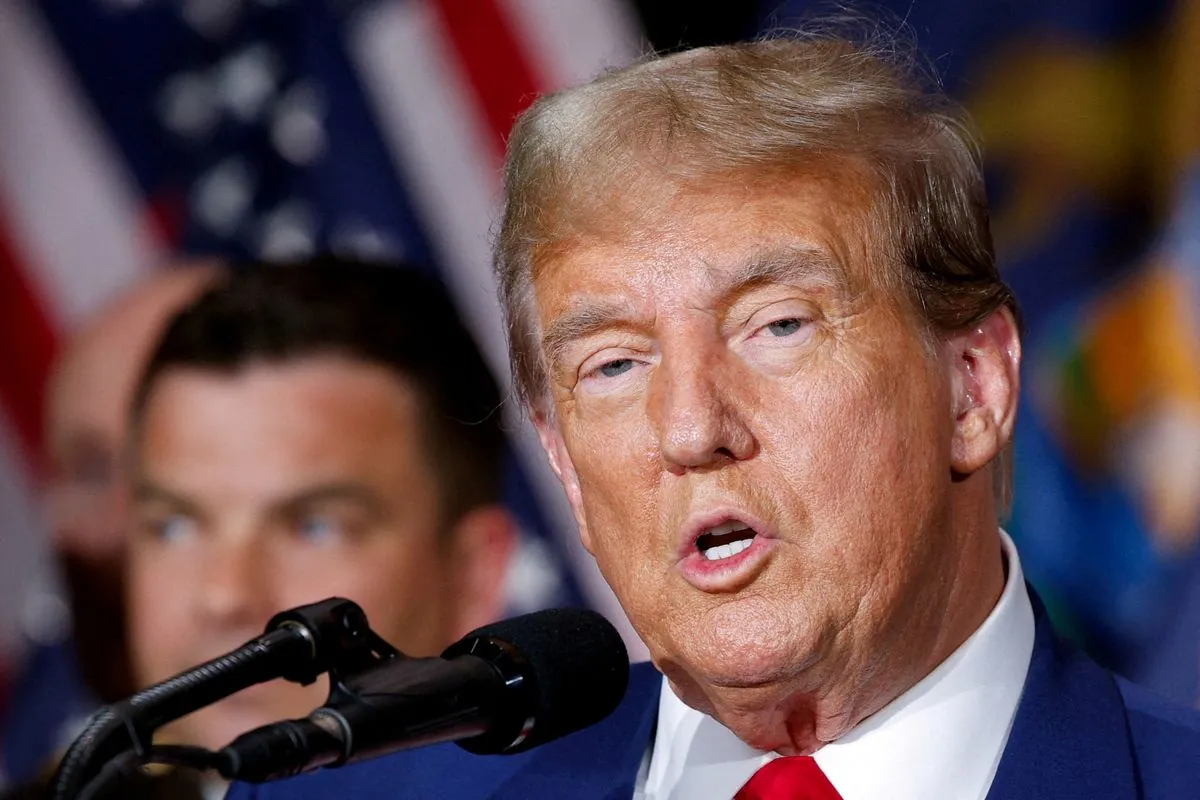In the evolving landscape of American politics, Donald Trump's campaign strategy continues to push boundaries, particularly in its approach to racial rhetoric. This analysis examines the progression and potential implications of Trump's messaging, drawing on insights from political experts and recent polling data.
Republican pollster Patrick Ruffini previously noted Trump's ability to employ controversial rhetoric without significant backlash from certain voter demographics. This observation has proven prescient, as evidenced by Trump's performance among minority voters in recent elections.
In the 2016 election, Trump faced substantial opposition from Black and Hispanic voters. However, the 2020 election saw a shift, particularly among Hispanic voters, despite heightened focus on racial issues following George Floyd's death. This trend challenges assumptions about the impact of Trump's rhetoric on minority voting patterns.
Trump's recent social media activity has further intensified his controversial messaging. In late August 2024, he shared an image on Truth Social depicting Muslim men burning an American flag, with text implying a threat if Kamala Harris wins the election. Another post in early September featured an image of tattooed Hispanic men, labeled as "new apartment managers" in a Harris re-election scenario.
These posts align with broader right-wing narratives circulating on platforms like Fox News and Truth Social. One such story, which gained traction on September 9, 2024, involved unsubstantiated claims about Haitian immigrants in Ohio stealing and eating pets. While lacking evidence, these claims echo long-standing anti-immigrant tropes.
Trump's campaign has also amplified fears of "migrant crime," despite a lack of supporting data. This messaging often focuses on non-White immigrants, reinforcing racial stereotypes.
"7 in 10 Black Americans have strongly unfavorable views of Trump, two-thirds think his policies would hurt Black people, and 7 in 10 believe that Trump does not understand the experiences of Black Americans well at all."
The Washington Post-Ipsos poll, released on September 9, 2024, reveals significant opposition to Trump among Black voters. Despite this, Trump's overall polling remains competitive with Vice President Harris.
As the November 2024 election approaches, the key questions are whether Trump's escalating racial rhetoric will reach a tipping point and what consequences might ensue. The strategy's effectiveness thus far raises concerns about its potential normalization in American politics.
This situation echoes the metaphor of "turning a big dial [that] says 'Racism' on it," coined by internet personality Dril. As Trump continues to "turn the dial," the political landscape watches closely to see if and when it might turn too far.
